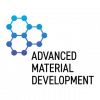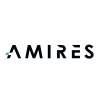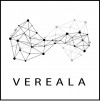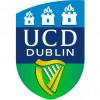Advancing nanomaterials safety testing was the mission of two European Union-funded Horizon2020 projects,  NanoReg2 and GRACIOUS. They brought together 120 nanotechnology specialists from Europe, North America and Asia at the Organisation for Economic Co-operation and Development (OECD) in Paris on September 12-13. Experts from research, industry, regulation and policy worked to improve how safety information can be more effectively obtained, supporting faster growth in nanomaterials development.
NanoReg2 and GRACIOUS. They brought together 120 nanotechnology specialists from Europe, North America and Asia at the Organisation for Economic Co-operation and Development (OECD) in Paris on September 12-13. Experts from research, industry, regulation and policy worked to improve how safety information can be more effectively obtained, supporting faster growth in nanomaterials development.
Many variations of a single solid substance can exist, with differences in size, morphology and surface characteristics. Depending on the size, some variations have to be reported and regulated as nanomaterials. Financial and ethical considerations mean that safety testing of each variation for their potential adverse effects is virtually impossible. For these reasons, improved ways to obtain safety information are needed for a successful and sustainable nanomaterials sector.
Clustering nanomaterials with similar characteristics (Grouping) and predicting the behaviour of new nanomaterials within each group (Read Across) is the widely recognised solution. It would reduce testing within regulatory requirements without compromising safety standards. This allows efficient development of safe and novel nanomaterials, based on increased understanding of their behaviour and possible impact on humans and the environment.
 The Paris workshop was an effective platform for stakeholders to bring their expertise to the design of a science-based framework for effective Grouping and Read Across of nanomaterials. NanoReg2 and GRACIOUS will finalise concepts and practical roadmaps to support producers, governments, regulatory agencies and standardisation bodies for safe and innovative nanomaterials.
The Paris workshop was an effective platform for stakeholders to bring their expertise to the design of a science-based framework for effective Grouping and Read Across of nanomaterials. NanoReg2 and GRACIOUS will finalise concepts and practical roadmaps to support producers, governments, regulatory agencies and standardisation bodies for safe and innovative nanomaterials.
The GRACIOUS Project Coordinator, Professor Vicki Stone explains the expected impact of workshop:
“The combined contributions of representatives of industry, regulators, policy makers and academics provided a real opportunity to generate a grouping framework that can benefit all stakeholders.”
The NanoReg2 Project Coordinator, Dr Emeric Frejafon added:
“This was an opportunity to create a global critical mass of opinion so we can support nanomaterial development and safety assessment worldwide.”
The GRACIOUS and NanoReg2 projects build on outcomes of earlier projects, reflecting over a decade of significant research investment by the European Commission. Over €250 million has been dedicated to the development of safe nanomaterials in the FP7 and H2020 programmes.
CLICK HERE for full agenda and slides from the meeting.



















